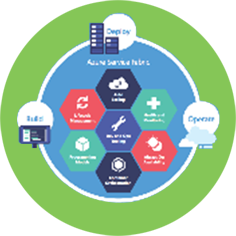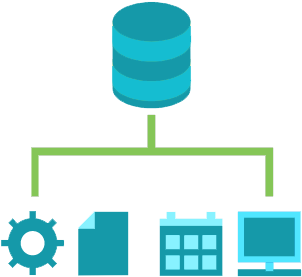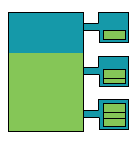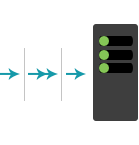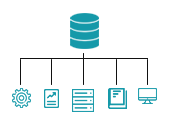December 3, 2021
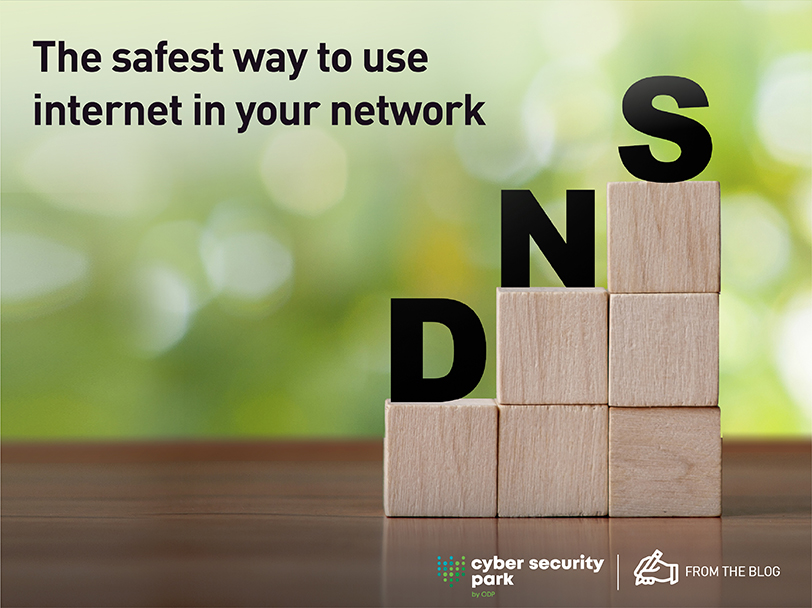
The world has become increasingly reliant on technology than ever before. Apparently, it will only continue to grow even more as smart services and Internet-enabled devices will keep getting introduced that often have access to our networks. Data security thus becomes a top most priority for businesses across the globe. Especially, those business websites where customers log in every day, must assure data security and privacy.
Because of increasing dependency on technology, a lot of sensitive personal data and financial information such as our bank account details, debit or credit card information, trade secrets, etc. get stored in the cloud. It can lead to data breaches. This has been further exasperated with the ongoing global COVID-19 pandemic, which has forced businesses to rapidly shift online. Most former brick and mortar stores have had to turn towards cloud computing and the WFH culture to continue their operations. As a result, this has had the side-effect of causing a drastic increase in the number and complexity of cyber-attacks globally in recent months. There is a sudden increase in the number of unsecured computers and handheld devices being connected to previously closed and secure networks, leaving them vulnerable to advanced malware attack targeting emails, Microsoft Office, and more. Now imagine, what it has led to is a prefect breeding ground for a wide range of cyber security threats that were never heard of.
Cyber security is one way that is believed to protect computer systems, networks, and devices, from any type of cyber-attack. But the reality is multifaceted.
Unfortunately, there are several factors that play a role in the whole scene of cyber-crime. On the other hand, cyber criminals too have evolved and function with sophisticated technology. It comes as no surprise that cyber-crime damages are projected to exceed a staggering USD 6 trillion by 2021. The cost of the average data breach is also rising. According to Ponemon, the average cost of a data breach around the world is $3.86 million. Ransomware, legal battles over data protection, and loss of consumer confidence are all factors in the rising cost of malware. In today’s world, the most common cyber threats with third-party vendor apps are ransomware, phishing, and spyware. These apps process your data but usually have poor cyber security practices.
Since data privacy has become a sensitive issue with advancing technology, most companies are adopting the most effective ways to combat such malicious threats. From prominent global brands to small-scale businesses just about in every sector, is investing in advanced cyber security infrastructure. These include using DNS filters to protect their business practices along with the millions of customers that trust them with their data. DNS filtering is an effective way to protect your devices and networks from hacking, malware, viruses, and cybercrime.
What is Domain Name System (DNS)?
The Domain Name System, or in short DNS, is like a worldwide telephone directory for the web. It is responsible for translating domain names, like omandatapark.com, to its respective IP address, like 194.0.5.84. DNS is important to allow the users to access websites without memorizing confusing numbers. Much like how we store our friends’ phone numbers in our phone’s contacts list instead of memorizing every individual phone number.
As a matter of fact, every single web page, website, etc. has an assigned IP (or Internet Protocol) address which is a multi-digit identification code. This IP address enables our computers to locate and connect to other remote computers and enables the communication that supports our World Wide Web.
The Domain Name System makes it easier for humans to use the internet and removes the requirement for us to remember all of those number-only IP addresses. The DNS maps IP addresses to domain names and allow computers to find web resources. Thus, it is an essential for accessing web content. There is no other possible way for content to load before the DNS process takes place. This is why, DNS filtering is an effective way to exert control over what content users can access. You can imagine, if there was no DNS, we’d all be typing in long, random combinations of characters and numbers in order to reach anywhere online!
What is DNS filtering?
At its core, DNS filtering – or Domain Name System filtering is a process of using DNS to restrict or block malicious websites, webpages, and IP addresses and filter out harmful or inappropriate content. It ensures that company data remains secure and has more productive working environment on the Internet. Through DNS Filtering, companies have a control over what their employees can access on company-managed networks. More often than not, it is part of a larger access control strategy.
So, how does DNS Web Filtering work?
To host your business site on the internet, you need a domain name. This domain name is your internet address. When users search for your business online, they enter the domain name, or URL, in their browser and wait for your website to load. This is where DNS filtering comes into play. The DNS searches your IP address and connects a browser to a web server to fetch the information you need. This takes about a few micro-seconds. Once the browser connects to the web server, the web page is loaded on the screen.
DNS filtering goes a long way towards providing an important support to the network infrastructure and towards protecting your internet traffic and users. However, it also needs a robust strategy along with trusted cybersecurity partners, and other technologies to ensure maximum protection. It is important to acknowledge the role of anti-virus, spam filters, two-factor authentication, and remediation policies that are also critical to defending your networks.
With the implementation of DNS filtering, every request made on the server will be subjected to certain controls. DNS blocking occurs immediately if a particular webpage or IP address seems to be malicious or threatening. How does this happen? The service provider of the DNS filter gets a blacklist of malicious webpages and IP addresses in real-time and therefore it prevents access to those sites. When a user tries to access a website blocked by DNS filters, they are redirected to a local IP address while telling them why they cannot connect to that website. This type of control can be very well applied at the router level, via ISP or by a web filtering service provider.
DNS Filter Service by ODP

Oman Data Park offers a cost-effective way to deploy
DNS Filter Service. It works by allowing or blocking access to websites and
URLs at the network level. It provides your organization complete control over
its network security regardless of who accesses the network or which device
they use.
The DNS Filter from Oman Data Park is powered by AI. The
DNS content filter uses real-time analysis of websites to update its
protection. The powerful analysis gives the DNS web filtering service an
advantage over device-based security measures. It detects threats block them in
real time, which gives an unmatched level of protection.
When a user visits a website, the Webshrinker AI
categorizes the site based on its security and content. Sites in violation of
established rules are blocked for every user. Constant, AI-driven updates
provide better security to the IT teams. Not only that, a low per-user cost
system offers better value than device-based pricing.
The DNS content filtering works with simple tools for
adding rules and categories of content in seconds. It aims to block adult
content, allow specific websites, and set up social media access in a short
time. A clear dashboard and visual reporting provide excellent management of
the DNS filter.
What are the advantages of DNS Filtering Service?
DNS filtering solution by ODP can offer numerous advantages but the top most among all is its ability to completely block access to malicious websites as well as sites that are considered “Objectionable”, those hosting content related to pornography, gambling, violence, terrorism, and more. Let’s learn more about its benefits.
1) DNS filter service by ODP offers a secure and reliable connection to the internet. Its web-based dashboard gives you a global view of all your sites and statistics with ease – regardless of size, complexity, and your location.
2) ODP ensures that its domain analysis is powered by A.I. This allows us to identify malicious domains and undesirable content in real-time, providing an unparalleled level of protection by eliminating major threat vectors.
3) Protect your users and networks against command and control (botnet) attacks, malware, phishing, viruses, and other threats simply by applying our security policies. DNS Filter is the only provider in the industry using security threat analysis powered by A.I. and machine learning.
4) DNS Filter makes it easy to deploy comprehensive and customizable URL and internet content filtering policies in mere minutes. Simply tell DNS Filter what categories of websites you want to block – Adult Content, Chat & Instant Messaging, Social Networking, etc.
5) When it comes to size, it is comparatively lighter, faster, and more scalable. With its premium and enterprise-grade offerings, it gives you advanced flexibility for customization.
6) Since no two organization operate in the same manner and has unique requirements as well as web browsing habits, DNS filtering allows customized configurations with ease.
7) DNS filtering helps keep your company’s internet requests private and invisible to malicious players on the net who can potentially abuse this data.
8) It provides a high level of precision in keeping organizations safe from malware without making IT departments deal with awkward and frustrating services.
9) DNS filter service provides full visibility and log access to all of your internet traffic requests, allowing for security analysis and management through reports or ingestion via a SIM/SIEM.
10) Another plus point of implementing DNS protection is the ability to avoid employees’ downtime. DNS protection can also block time-wasting sites like social media, streaming platforms, gambling, and other sites that are inappropriate for work.
The Conclusion
All in all, DNS filtering service by ODP allows companies to implement and deploy a wholesome, advanced and robust Internet usage policy. It ensures that malicious website content and other threats that could potentially do you harm are blocked and do not have any access.
There’s one thing about online presence that you might not be able to prevent yourself from becoming the target of a hacker but with the right set of infrastructure and technologies in place, you can significantly improve your defenses against known as well as unknown cyber threats and reduce the chances of having your network penetrated by accidental user error.
DNS filtering is very useful for any organization who is looking to prevent data breaches and attacks by malware. With a reliable DNS filter for your network, you can stop users from accessing and downloading malware that could harm your systems or networks which could cost you a bomb.
You can get in touch with one of our experts today to deploy the new DNS Filter service from The Data Park. Our team of security experts and network technicians will help you with a smooth delivery and easy rollout of your new DNS filtering service.
To know more, reach out to us via phone at +968 24171195 or email sales@omandatapark.com






